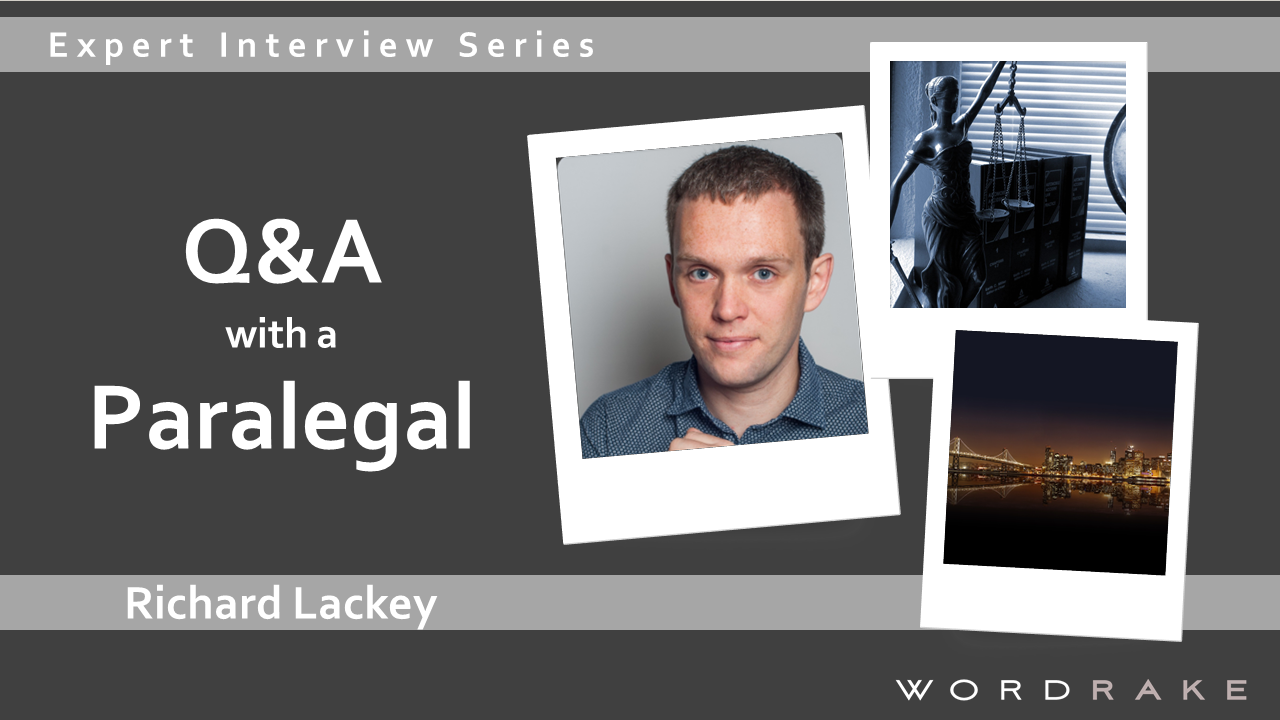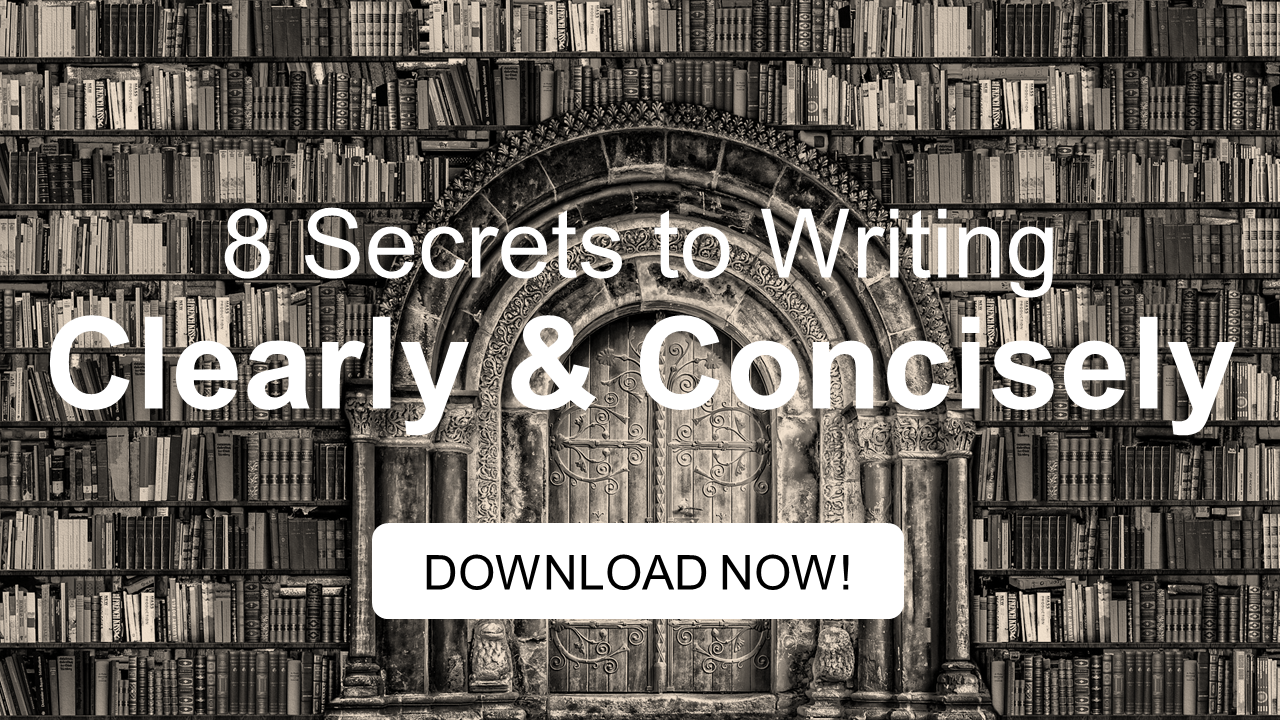The legal world is vast and there are many ways to contribute to it aside from being a lawyer. The narrow view of who may contribute to law seems even smaller when it comes to contracts (as compared to litigation), but that’s about to change. In this interview, Richard Lackey explains his new role in legal technology as a contract review specialist at LegalSifter and shares what he’s learned from his multi-dimensional experience as a legal translator and paralegal.
What is your role and how did you get to where you are today?
I am a paralegal and contract review specialist at LegalSifter, working alongside Ken Adams (author of A Manual of Style for Contract Drafting). My task is to search through contracts in specific areas and to spot crucial clauses that users need to identify. Ken then designs the specifications so the data science team can create Sifters that will identify these clauses. There are already hundreds of Sifters, but we’re building out new ones to identify very specific clauses important in different contexts. For instance, I’m currently working on sale of goods contracts but last month we were looking at contracts relating to hotel bookings.
Before joining LegalSifter, I worked as a translator and ran a small legal translation company for around 10 years. I enjoyed working with legal documents and developed a passion for the law. That led me back to law school, which I completed in the U.K. in 2020. The job at LegalSifter combines my interests in language, law, and technology in a way I hadn’t considered possible.
Shifting from translation work to paralegal and legaltech work, what are the biggest differences you’ve experienced?
The scope of the work is vastly different. In translation, you’re working with a fixed text (in Spanish or French in my case) so the content is already there. The translator’s role is to accurately convey the author’s words and intentions into a well-written interpretation of that original document. Because I did commercial work for busy lawyers, the deadlines were demanding. However, the standards were high and often the translations were used pre-litigation, in court, to sign major contracts with international counterparties or for publication.
During the research work I’m doing for LegalSifter, there’s almost no end to how wide the scope can be and the scope can change depending on what I find. Also, because we’re developing a product, the content I produce won’t be published externally so it feels as though I only ever submit my draft version. I find it fascinating, but it can be a little overwhelming. It helps to check back in with Ken regularly to see if we’re going down a relevant path, or a rabbit hole. I think it helps to think of contracts as the Wild West, and what we’re doing is to create a Google Map that can guide you through the hazardous desert.
What skills can someone with paralegal training bring to the legaltech world?
Familiarity with how legal documents work and the key stakeholders in the legal ecosystem is a big plus. Contracts can be straight up weird so background knowledge goes a long way to breaking down the barriers.
If you’re thinking of transitioning from a paralegal job to legaltech, then I would also advise looking at legal operations. CLOC has some great resources and a very strong community of in-house and law firm professionals at all levels, from paralegal to legal ops and management.
How can technology help paralegals and lawyers work better together?
We all need to get more efficient in our jobs, and that requires strategic thinking. Technology can help a lot. But only if it’s used in the right way. Paralegals and lawyers should start with the basics such as using the full functionality of Word, Excel, and Teams, and building no-code workflows such as through Google Forms or Typeforms.
Once the basics are covered, there’s no limit to how creative you can get. Legaltech solutions are getting better and better too. I have been impressed with how well LegalSifter works and addresses a key pain point of reviewing contracts on third-party paper. They have several innovative clients finding some very effective use cases. I believe it will be widespread in the next few years.
I am constantly reading about technological developments, and I follow several thought leaders. I had a chat recently with Jason Barnwell (General Manager and Associate General Counsel for Digital Transformation at Microsoft). He makes a convincing argument that in ten years, we won’t be looking to increase productivity by 10% or 20%. We’ll need to find 10x productivity to keep up with competitors and with advances from applying new technology. To keep up with that pace of development, we need to re-tool substantially and hyperspecialize to find our own niches. Terrifying perhaps, but a huge opportunity for legaltech and for professionals willing to put in the efforts to keep pace.
How has technology helped you in your legal translation and paralegal work? Is it different?
Funnily enough, I find a lot of tools at my disposal are transferable. As a translator, you must extensively research word usage and usage in a particular context. One tool available is a corpus searching tool, which I used both as a translator and now as a contract reviewer. I compile a list of contracts and can then search through them for specific words and contextual information.
The second isn’t so much a technology, but a habit of performing advanced Google searches. By filtering the right type of documents (e.g., PDFs), domain names, and keywords you can find just about anything. I also have shortcuts through AutoHotkey that make it a lot quicker to perform searches.
Voice recognition software is amazing too. I use Dragon NaturallySpeaking.
How can paralegals help raise the standard of work?
I recommend joining professional associations to collaborate, share knowledge, and network. Volunteer if you have time. I recently joined the committee of the New York City Paralegal Association (NYCPA) and it has been a great way to meet paralegals in NYC. I have attended several training webinars which have gotten me up to speed on corporate filings in NY, time management through block booking, and legal operations. NYCPA plans to organize in-person events whenever it is possible again, hopefully soon.
What do you wish lawyers understood about document drafting?
I wish there was a little more standardization both in terms of documents used (oneNDA is an interesting project to consider) and drafting style (of course, I’d highlight A Manual of Style for Contract Drafting by Ken Adams). Ken is genuinely the most committed person I know to improving contract language.
Reviewing contracts written by multiple lawyers, in multiple styles, and varying egos can be a real headache.
What advice would you give to legal professionals just starting out in the legal world?
Get as much experience as you can and say “yes” to interesting opportunities! Get out there and speak to as many people as you can in the legal industry so you can build an understanding of the industry and where it’s heading. It’s never too soon to build a network of peers. Further, in a commercial setting, any background you have (whether it’s working in a kitchen, in service, or in sports) will give you an edge; you would be surprised at the number of skills you bring to the table.
About Richard Lackey
Richard Lackey is a paralegal and contract review specialist at LegalSifter. He works alongside contract language expert Ken Adams (author of A Manual of Style for Contract Drafting) in training algorithms to recognize key contract clauses and build user-friendly drafting and negotiating advice. LegalSifter is designed to facilitate review of contracts on third-party paper and to help users apply the company playbook.
Richard holds a degree and master’s in English law with a focus on corporate law. Before working at LegalSifter, Richard was an experienced legal translator and founded Contractually Speaking Ltd, a boutique translation firm set up to provide clear and concise translations of legal documents for clients dealing with cross-border commercial, contract, and tax issues. He worked with clients based in the U.K., France, Spain, and Switzerland and regularly gave talks throughout Europe.
About the Paralegal Interview Series
This interview is part of a collection of interviews about paralegal work. By producing this series, we hope to shine a light on some of the most important but often undervalued people in law: paralegals. Paralegals are key contributors to a high-value legal practice and are more effective when they’re empowered. Let’s start working better together.
Nearly everyone working in a law firm writes, and that writing must be done well. WordRake can help produce better, clearer documents in less time. WordRake is clear and concise editing software designed for people who work with confidential information. The software improves writing by simplifying and clarifying text, cutting legalese, and recommending plain English replacements. WordRake runs in Microsoft Word and Outlook, and its suggestions appear in the familiar track-changes style. Learn more about our paralegal program and our 2-week enterprise pilot. Or try an individual license of WordRake for free for 7 days.






